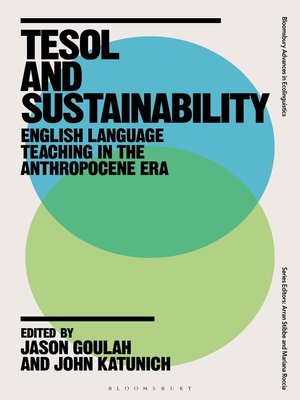TESOL and Sustainability
ebook ∣ English Language Teaching in the Anthropocene Era · Bloomsbury Advances in Ecolinguistics
By Jason Goulah

Sign up to save your library
With an OverDrive account, you can save your favorite libraries for at-a-glance information about availability. Find out more about OverDrive accounts.
Find this title in Libby, the library reading app by OverDrive.



Search for a digital library with this title
Title found at these libraries:
| Library Name | Distance |
|---|---|
| Loading... |
In the burgeoning field of ecolinguistics, little attention has been given to the ways in which English language teaching is and has become implicated in global ecological crises. This book begins a dialogue about the opportunities and responsibilities presented to the TESOL field to re-orient professional practice in ways that drive cultural change and engender alternate language practices and metaphors.
Covering a diverse range of topics, including anthropogenic climate change, habitat loss, food insecurity and mass migration, chapters argue that such crises require not only technological innovation, but also cultural changes in how human beings relate to each other and their environment. Arguing that it is incumbent upon the field of English language teaching to reckon with such cultural changes in how and what we teach, TESOL and Sustainability addresses the ways in which discourses such as eco-pedagogy, the critique of neo-liberalism, non-Western philosophy and post-humanist thought can and must inform how and what is taught in ESL and EFL classrooms.
Covering a diverse range of topics, including anthropogenic climate change, habitat loss, food insecurity and mass migration, chapters argue that such crises require not only technological innovation, but also cultural changes in how human beings relate to each other and their environment. Arguing that it is incumbent upon the field of English language teaching to reckon with such cultural changes in how and what we teach, TESOL and Sustainability addresses the ways in which discourses such as eco-pedagogy, the critique of neo-liberalism, non-Western philosophy and post-humanist thought can and must inform how and what is taught in ESL and EFL classrooms.







